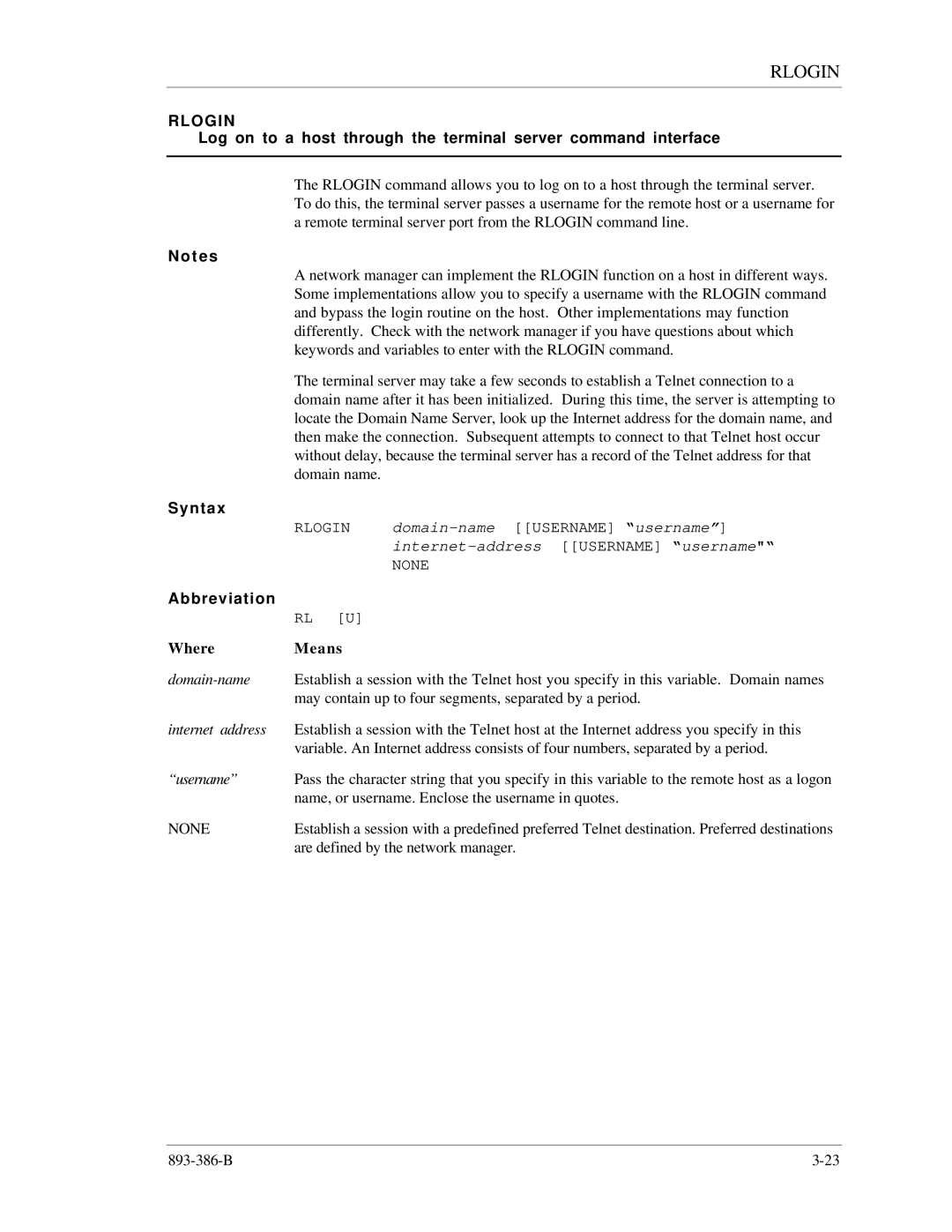
RLOGIN
RLOGIN
Log on to a host through the terminal server command interface
The RLOGIN command allows you to log on to a host through the terminal server. To do this, the terminal server passes a username for the remote host or a username for a remote terminal server port from the RLOGIN command line.
Notes
A network manager can implement the RLOGIN function on a host in different ways. Some implementations allow you to specify a username with the RLOGIN command and bypass the login routine on the host. Other implementations may function differently. Check with the network manager if you have questions about which keywords and variables to enter with the RLOGIN command.
The terminal server may take a few seconds to establish a Telnet connection to a domain name after it has been initialized. During this time, the server is attempting to locate the Domain Name Server, look up the Internet address for the domain name, and then make the connection. Subsequent attempts to connect to that Telnet host occur without delay, because the terminal server has a record of the Telnet address for that domain name.
Syntax |
|
|
| RLOGIN | |
|
| |
|
| NONE |
Abbreviation |
|
|
| RL [U] |
|
Where | Means |
|
| Establish a session with the Telnet host you specify in this variable. Domain names | |
| may contain up to four segments, separated by a period. | |
internet address | Establish a session with the Telnet host at the Internet address you specify in this | |
| variable. An Internet address consists of four numbers, separated by a period. | |
“username” | Pass the character string that you specify in this variable to the remote host as a logon | |
| name, or username. Enclose the username in quotes. | |
NONE | Establish a session with a predefined preferred Telnet destination. Preferred destinations | |
| are defined by the network manager. | |
